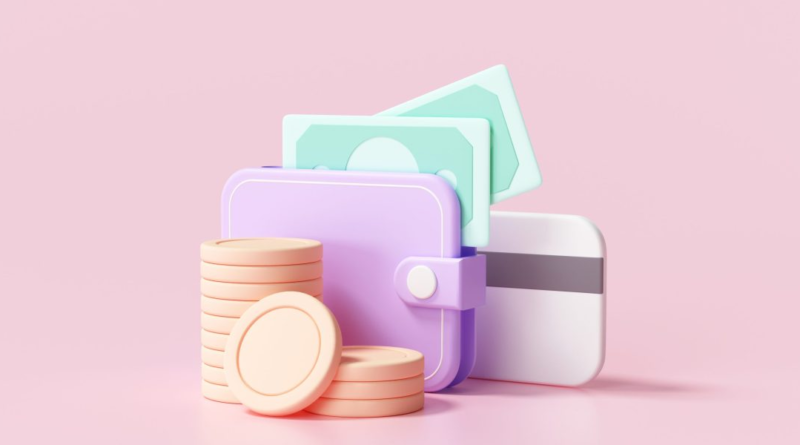A prepaid debit card is an easy way to charge it—here’s what you need to know
A prepaid debit card is a type of card you can load money onto in advance to spend later. Although prepaid cards may look the same as other plastic payment methods you keep in your wallet, they feature significant differences compared to traditional debit cards or credit cards.
You don’t have to pass a credit check to qualify for a prepaid debit card. However, using a prepaid debit card cannot help establish credit history or build your credit score. So, before deciding whether to get one, it’s important to understand whether you seek to build credit or just need a tool to manage your funds—as well as benefits and drawbacks pertaining to interest, fees, and protections. We’ll help you evaluate if a prepaid card is right for you.
SPONSORED PARTNER
Netspend Prepaid Card
Our take
The Netspend Prepaid Card gives users peace of mind that they won’t be turned down at the register for going over their balance by a few bucks.
| Monthly fee | $5.00 |
| ATM fee | $0 |
What is a prepaid debit card?
A prepaid debit card is a type of plastic payment method that you can pre-load with money. Once you take this step, you can use the card to make purchases at brick-and-mortar stores or online. Prepaid debit cards use 15- or 16-digit numbers just like you may have seen on other types of plastic such as traditional debit cards or credit cards.
Many prepaid cards are backed by major credit card networks such as Visa, Mastercard, or American Express. As a result, you can typically use a prepaid debit card at any retailer that accepts credit cards or regular debit cards.
In general, prepaid debit cards work like gift cards. Once there’s money on the card, you can spend those funds (minus any applicable fees) until the balance reaches zero. At that point if you want to use the card for additional purchases, you’ll need to deposit more money onto the prepaid card before you can use it as a payment method.
Prepaid debit cards vs. regular debit cards vs. credit cards
On the exterior, prepaid debit cards resemble regular debit cards and credit cards. However, these three types of plastic payment methods operate in different ways. Below is a closer look at each.
Credit cards
Credit cards are a form of financing. When you use a credit card, you borrow money from a lender (up to a preset credit limit) that you pledge to repay at a future date according to the terms of your credit card agreement.
If you repay your full statement balance by your due date each month, you can use a credit card without incurring interest charges. But if you revolve credit card debt from one statement to the next, you’ll owe interest to your credit card issuer.
Some credit cards offer rewards on your purchases in the form of cash back or points and miles you can redeem for travel. And, credit cards typically provide robust protections for the cardholder in cases of fraudulent transactions.
Debit cards
Traditional debit cards are attached to a bank account. They’re essentially a plastic check. You can use this payment method to pay for purchases using money you have already deposited into your checking account with a financial institution, like a bank or credit union.
A debit card could be a good option if you think you’ll be tempted to overspend by the borrowing power of a credit card. However, know that you may be less protected against fraud when using a debit card. For example, under federal law, if someone steals and uses your credit card the maximum you might be responsible for is $50 (and issuers typically offer $0 fraud liability).
But with a debit card, it depends on how quickly you report the card missing—you could be liable for up to $50 if you report card loss or theft within two days of learning about it, up to $500 if it’s more than two days after you learn the card is missing but within 60 days of when your statement is sent to you, or an unlimited amount if it’s more than 60 days after your statement.
Prepaid debit cards
Prepaid debit cards aren’t linked to a line of credit or a bank account. Instead, it’s a type of cash alternative.
You preload cash onto a card and spend your funds until the balance reaches zero. (Note: Many prepaid debit cards levy fees that may reduce your available spending balance.) If you wish to use the same card again, you reload cash onto the same card and repeat the process.
While specifics will depend on what card you have, typical methods of adding money to a prepaid debit card include:
- Having a paycheck deposited onto the card.
- Transferring money from a bank account.
- Buying a “reload pack” for your card.
- Adding funds at certain store locations.
Pros and cons of prepaid debit cards
As with any financial product, you should consider the pros and cons of prepaid debit cards before you use one. Here are some key factors to think through.
Pros of prepaid debit cards
- No credit check: When you use a prepaid debit card, you don’t borrow money from a lender or credit card company. Therefore, no one will check your credit report or score when you open this type of card account. As a result, there’s no hard inquiry on your credit report and no risk of associated credit score damage. You also don’t need to worry about whether or not your credit is good enough to qualify for this type of card.
- Zero debt: There’s no possibility of getting into credit card debt when you use a prepaid debit card. Instead, prepaid debit cards are an alternative way to spend cash you already have.
- No interest: Because you’re not borrowing money, you don’t have to pay any interest when you use a prepaid debit card. Of course, if you manage a credit card responsibly you can typically avoid paying interest (thanks to the grace period) by paying your full balance off by the due date each month.
- Potentially safer than cash: Thanks to a rule put in place by the Consumer Financial Protection Bureau (CFPB) in 2019, prepaid cards offer consumers similar protections as a bank account in terms of theft and fraud. Make sure to register your card properly when you get it—and report any loss, theft or suspicious transactions right away. And, to ensure you’re protected in case the financial institution providing the prepaid card account fails, review the fee disclosure information for a line saying, “Your funds are eligible for FDIC insurance.”
Cons of prepaid debit cards
- No credit-building potential: Prepaid debit cards do not appear on your credit reports with the credit bureaus Equifax, Experian, and TransUnion. That means they do not have the potential to help you establish credit history or build credit scores.
- Fees: When you use a prepaid debit card, the provider may charge you a variety of fees including activation fees, monthly service fees, transaction fees, overdraft protection fees, ATM fees, and more. These costs can add up over time and make it expensive to use this type of payment method. Specifics vary by card, so when evaluating prepaid card options, it’s smart to look for one that will allow you to avoid fees based on the usage patterns you have in mind. For example, some cards may waive the monthly fee if you set up direct deposit, or may offer free reloads at specific retailers.
- Less robust fraud protections: Credit cards feature the most robust fraud protections of any payment method followed by debit cards. Unfortunately, using a prepaid debit card could leave you more vulnerable in the event of fraud or the loss of your card—especially if you forget to register your card or report the issue in a timely fashion.
- Limited rewards: Most prepaid debit cards don’t feature rewards. However, if you have good credit there are numerous credit card offers that come with rewards in the form of points, miles, or cash back on your eligible everyday purchases.
Where to buy prepaid debit cards
You can purchase prepaid debit cards in person at many different retail locations. Grocery stores, drug stores, and big box stores are a few examples of stores that often sell prepaid debit cards.
However, it’s also possible to buy prepaid debit cards online from a variety of different providers. If you decide that a prepaid debit card is a payment method you’d like to use, this may be the better option in terms of finding the exact card that works best for your needs.
It’s always wise to look at multiple options with any financial product. When you shop around for prepaid debit cards online, it gives you the ability to compare fees and features from different providers to find the best options for your situation rather than being subject to chance and what a physical store may or may not have stocked. The good news is that we’ve done the hard work for you by ranking the best prepaid debit cards.
Alternatives to prepaid debit cards
Some people consider prepaid debit cards because they think they won’t be able to open a traditional credit card. However, if you’re worried you won’t qualify for a credit card due to bad credit or no credit, you may want to consider a secured credit card as a way to improve your credit score. A secured card is a type of credit card you can open using a cash security deposit as collateral. The deposit reduces the risk involved for the credit card company.
Typically, you’ll have to deposit the amount that you want as your credit limit, and there’s usually a minimum deposit. For instance, you might have to submit a minimum $200 deposit, which would result in a $200 credit limit. Your deposit is refundable if you pay off the card in full and close the account, and some issuers will graduate you to an unsecured card after a period of responsible management.
The account functions largely the same as a regular, meaning unsecured, credit card—giving you the opportunity to build credit provided you keep your balance low and always pay on time, as your utilization and payment history should be reported to the credit bureaus.
There are unsecured credit cards marketed to people with bad credit, but be wary of them. Many come with annual fees, sky-high interest rates, and additional fees that can add up quickly (such as account maintenance fees and authorized user fees). In many cases, you’d be better off going with a no-annual-fee secured card from a well-respected bank.
Bottom line
A prepaid debit card can serve as a cash alternative for consumers who don’t want to open a credit card or a bank account. But these types of accounts won’t help you build credit. They may also feature other drawbacks as well, including potential fees and limited consumer protections compared to credit cards.
If you’re seeking to build credit history and improve your credit score, consider a secured card as an alternative. And, if you decide to get a prepaid card because you just need a way to manage your money, compare multiple options and look for one that will fit your lifestyle and charge you the fewest fees. Finally, make sure to register your prepaid card when you get it so that you can take full advantage of any protections offered on the account should you lose your card or if it gets stolen.




